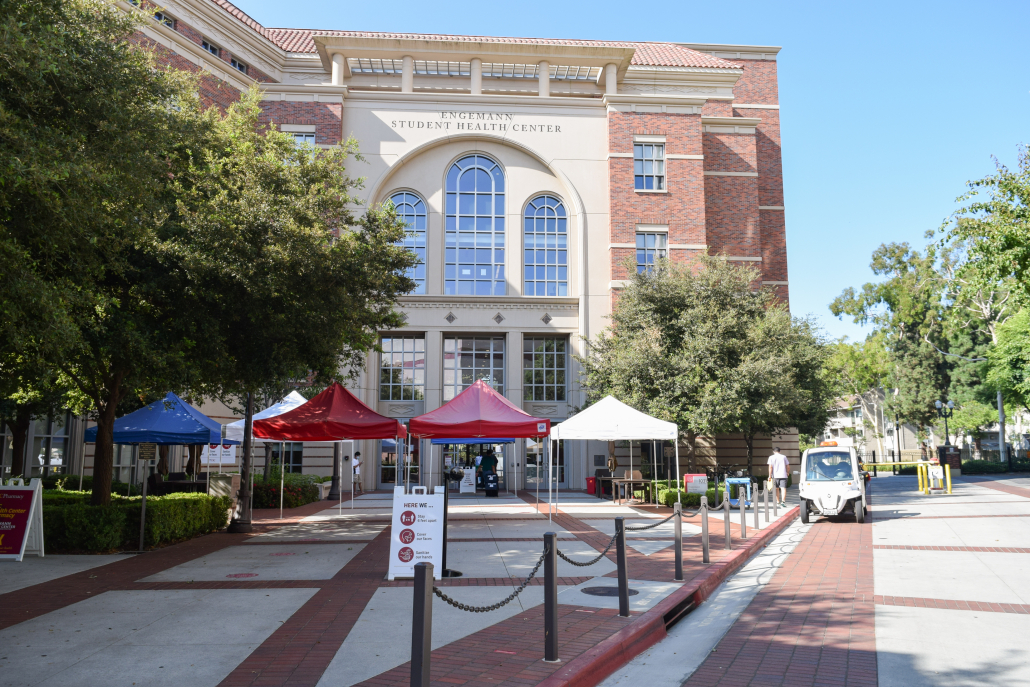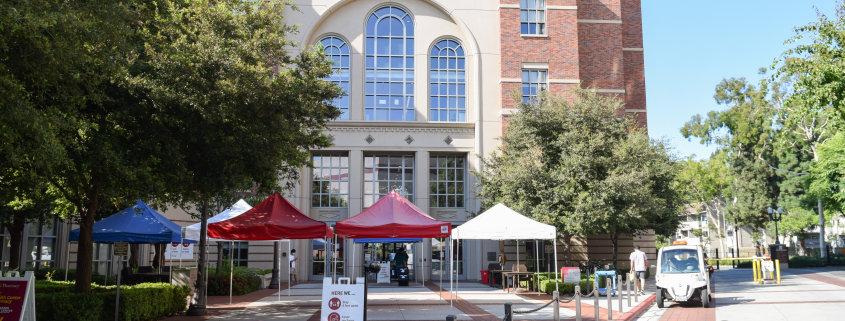Majority of students in May remain vulnerable to the coronavirus, Student Health antibody study finds

Results from a USC Student Health antibody testing study conducted in May show that the vast majority of students had remained vulnerable to the coronavirus. While it is still unclear how much protection antibodies can offer amid the pandemic, the study, which was published in the Journal of Adolescent Health Oct. 15, can potentially help Student Health pinpoint coronavirus cases during cold and flu season.
The cross-sectional study aimed to determine how much of the USC student population had contracted the virus by analyzing the prevalence of COVID-19 antibodies in student blood samples from April 29 to May 8. According to the study, of the nearly 800 students who answered a questionnaire and had their blood drawn at Student Health, only 4% — 31 students — developed antibodies, indicating prior infection.
“We tried to do that timeframe … because what we want to do is to get an estimate of the incidence in our population before everybody left, because we weren’t sure if people are traveling back and forth, if there was an increase in risk,” said Dr. Vladimir Ayvazyan, an assistant professor of clinical family medicine at the Keck School of Medicine, in an interview with the Daily Trojan.
According to the study, the 4% prevalence of antibodies is similar to what has been reported in prior population studies in both Los Angeles County and Santa Clara County. Based on these results, the study determined that the virus was not widely circulating among students by the time USC transitioned to a virtual format in mid-March, and the spread of infection at USC reflected local public health conditions in May.
“If we had a large proportion of students showing antibodies, indicating that the virus was widely circulating in our community between January and April, this could have informed our safety plans. But the rate was low,” said Co-Medical Director and Faculty Physician of Internal Medicine Dr. Kimberly Tilley, the lead author of the study, in an Oct. 16 press release.
Additionally, the study found that 81% of students who tested positive for antibodies reported loss of smell or taste, symptoms specific to the coronavirus and not influenza. This finding can help doctors narrow in on coronavirus cases during cold and flu season, Ayvazyan said.
“It’ll be really interesting to look at in the future,” Ayvazyan said. “But at this point, this was actually one of the questions that whenever we’re doing the interviews for contact tracing and the symptomatic patients. We would always ask because it would give us an idea of whether or not the coronavirus risk was present in the patient population.”
However, Ayvazyan stressed that loss of taste and smell are not the only coronavirus-related symptoms to be wary of moving forward, since there are other symptoms such as shortness of breath, cough and fever that are not exclusive to the coronavirus.
“This is why USC has implemented the Pop Testing [provided by external testing distributor Color] … which allows us to test a higher volume of students,” Ayvazyan said. “So I don’t think necessarily we need to focus on one particular clinical symptomatology. Although we have noticed in our study that most of [the participants] at that time period had a loss of taste and smell, that doesn’t necessarily mean that this is the only thing you need to have in order to be positive.”
The study noted that there is “not a strong argument” in issuing widespread antibody testing to inform reopening decisions for college campuses, especially when it is not known how much protection antibodies provide in already-infected individuals. According to Ayvazyan, the reopening of universities will depend on social distancing, contact tracing, rigorous testing for infection and other measures to mitigate spread.
According to Chief Health Officer Dr. Sarah Van Orman, Student Health is considering a follow-up to the study for specific student populations. Since May, USC has experienced multiple outbreaks, so much that in early September, University Park Campus had the fastest growing rate of coronavirus cases in L.A. County.
“We are actually considering repeating it, particularly among some of our groups of students who we know had a lot of disease,” Van Orman said in a student media briefing Thursday. “I think it’s really important though that we still are not at all at a situation where any indicators are that we have enough infection for there to be herd immunity, and … people are not even sure herd immunity is an important concept with COVID.”

